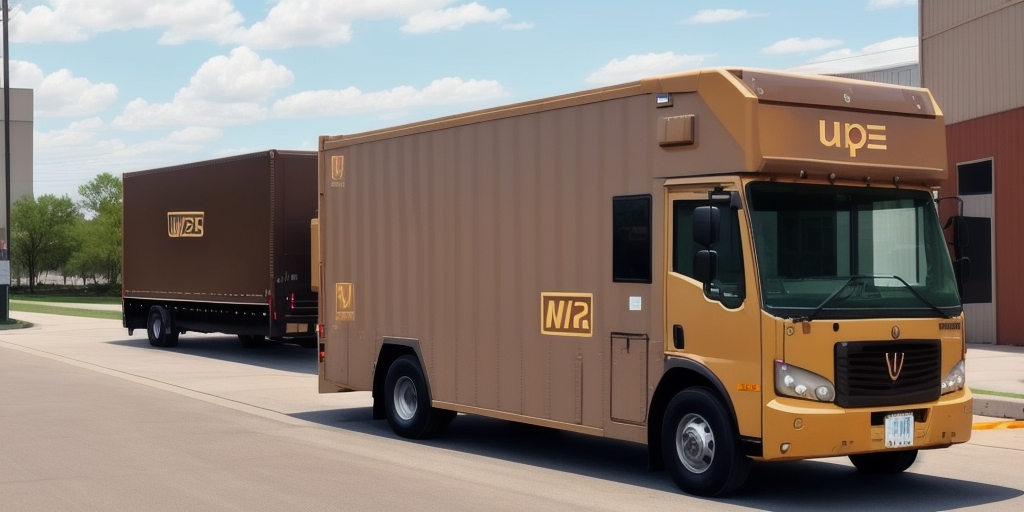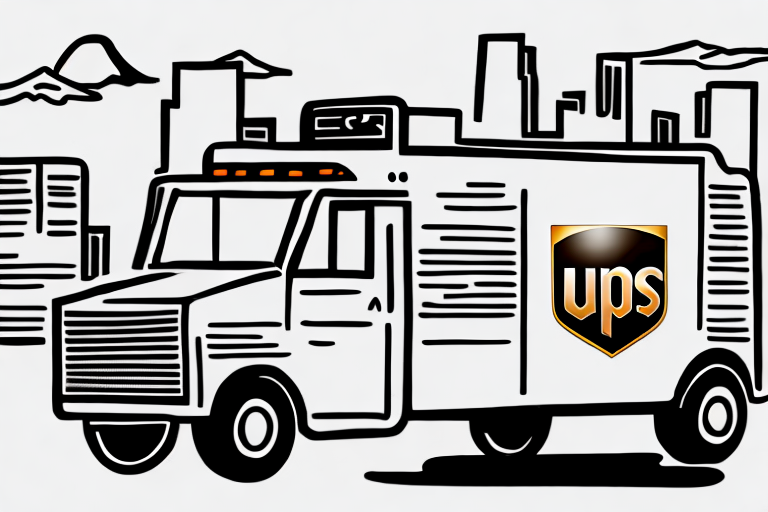Understanding UPS Insurance: Costs, Coverage, and Claims
Shipping valuable items requires assurance that your investment is protected. UPS offers insurance options to safeguard your shipments, but you might be asking: How much does UPS charge for insurance? This comprehensive guide delves into UPS insurance rates, coverage details, and the claims process to help you make informed shipping decisions.
Why Insurance is Essential When Shipping with UPS
No matter how carefully you pack, unforeseen circumstances like accidents, weather conditions, theft, or mishandling can compromise your package. Insurance provides financial protection, ensuring you're not left with a loss if something goes wrong. Additionally, recipients often expect and value the added security that comes with insured shipments.
The Importance of Insuring Valuable Shipments
- Financial Protection: Covers the cost of lost or damaged items.
- Peace of Mind: Reduces stress knowing your package is protected.
- Enhanced Credibility: Shows recipients you take shipment security seriously.
Types of Insurance Options Provided by UPS
UPS offers multiple insurance options to cater to different shipping needs:
Declared Value Coverage
This is the default insurance provided by UPS, covering up to $100 per package. It's automatically included unless you opt out.
UPS Declared Value and Additional Coverage
For higher-value items, this option allows coverage up to $50,000 per package. It offers more extensive protection compared to the standard declared value coverage.
Third-Party Insurance
Third-party providers offer insurance with broader coverage and often at lower rates. However, they may require more documentation when filing claims.
It's crucial to note that UPS's insurance only covers loss or damage during transit. Items like jewelry, antiques, and electronics may have limited or excluded coverage. Always verify coverage details with UPS or a third-party insurer to ensure comprehensive protection.
How UPS Calculates Insurance Costs
The cost of UPS insurance varies based on several factors:
Declared Value of the Item
Insurance costs are typically calculated based on the declared value of your shipment. Higher-valued items incur higher insurance fees.
Destination and Shipping Method
International shipments or expedited shipping methods may have different insurance rates compared to domestic standard shipments.
Type of Insurance Selected
- Declared Value Coverage: $0.90 per $100 of value, with a minimum charge of $2.70 per package.
- Declared Value and Additional Coverage: $0.75 per $100 of value, with a minimum charge of $4.50 per package.
Third-party insurance rates vary widely depending on the provider and coverage level but are generally more affordable than UPS's declared value rates.
Step-by-Step Guide to Purchasing UPS Insurance
Adding insurance to your UPS shipment is straightforward. Follow these steps:
- Select Your Shipping Method: Visit the UPS website and choose the appropriate shipping option.
- Enter Shipment Details: Provide information such as origin, destination, weight, and dimensions.
- Choose Insurance Type: Select between declared value or additional coverage and specify the item's value.
- Agree to Terms: Review and accept the insurance terms and conditions.
- Complete Payment: Finalize the shipment by completing the payment process.
If shipping internationally, verify specific insurance requirements for the destination country, as some may mandate additional documentation or specific coverage types.
Factors Influencing UPS Insurance Costs
Several elements can affect the cost of insuring your UPS shipment:
Declared Value
The higher the declared value, the more you'll pay for insurance.
Destination Country
International shipments often incur higher insurance costs due to increased risks and logistical complexities.
Shipment Type and Shipping Method
Fragile, high-value, or expedited shipments may require more comprehensive insurance, impacting the overall cost.
Level of Coverage
- Basic Coverage: Limited protection included in the standard shipping fee.
- Full Value Protection: Covers the entire declared value, typically at an additional cost.
Coverage Limits and Exclusions of UPS Insurance
Understanding the limitations and exclusions of UPS insurance is vital to ensure adequate protection:
Declared Value Coverage Limits
- Maximum of $100 per package.
- Certain shipments subject to legal liability limits.
Declared Value and Additional Coverage Limits
Offers coverage up to $50,000 per package, suitable for high-value items.
Exclusions
- Items Not Covered: Cash, jewelry, precious metals, and certain electronics.
- Improper Packaging: Damage resulting from inadequate packaging may void coverage.
Always review the terms and conditions of UPS insurance policies to understand what is and isn't covered before shipping valuable or fragile items.
What to Do If Your Package Is Damaged or Lost
If your UPS shipment is lost or damaged, you can file an insurance claim to receive compensation:
Filing a Claim
Provide evidence of the shipment value, details of the damage or loss, and any related financial impacts. UPS may investigate and require additional documentation before approving your claim.
UPS Claim Guidelines
- Certain items may have limited or excluded coverage.
- Natural disasters and uncontrollable events may not be covered.
For valuable or fragile items, consider purchasing additional insurance or utilizing UPS's premium packaging services to minimize the risk of damage and reduce the need for claims.
Tips for Successfully Filing a UPS Insurance Claim
To increase the likelihood of a successful insurance claim with UPS, follow these tips:
- Document Everything: Keep receipts, invoices, and take clear photos of damages.
- File Promptly: Submit your claim as soon as possible to meet UPS's deadlines.
- Provide Comprehensive Evidence: Include all necessary documentation to support your claim.
- Understand Policy Limitations: Be aware of what is and isn't covered under your insurance policy.
By meticulously preparing your claim, you enhance the chances of receiving appropriate compensation for your lost or damaged shipment.
Comparing UPS Insurance with Other Shipping Providers
When selecting shipping and insurance options, it's beneficial to compare UPS's offerings with other providers:
Cost Comparison
Third-party insurance providers often offer lower rates compared to UPS, especially for high-value shipments. However, they may require more extensive documentation for claims.
Coverage Comparison
Evaluate the breadth of coverage, including what items are excluded and the maximum coverage limits, to ensure it meets your needs.
Service Comparison
Consider the ease of filing claims, customer support quality, and overall reliability of the insurance provider.
By conducting a thorough comparison, you can choose the most cost-effective and comprehensive insurance option for your shipping requirements.
Conclusion: Making Informed Decisions About UPS Insurance
UPS provides a range of insurance options to protect your valuable shipments, but understanding the costs, coverage limits, and claims process is essential. By assessing your specific shipping needs and comparing UPS's offerings with other providers, you can ensure your packages are adequately protected without overspending on unnecessary coverage.
For more detailed information and to explore UPS's insurance options, visit the UPS Insurance page.








